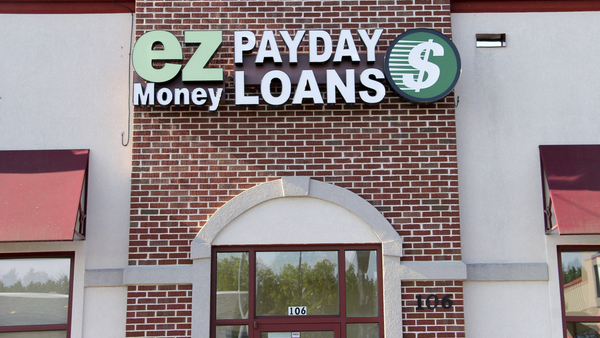
Despite the negatives overshadowing payday lending, often seen as predatory, primarily because of high interest rates that hover around 400%, one survey paints a different picture of payday borrowers.
“It is thought that the nature of the payday loan market creates a vicious cycle where borrowers’ financial limitations make it incredibly difficult to repay the loans on time, at which point they are slammed by outlandishly high APRs. Borrowers must then take out another payday loan to pay off their previous payday loans, and a cycle of unsurmountable debt is initiated,” Mike Brown at Research Analyst at LendEDU, said. The Hoboken, N.J.-based research firm.
According to the CFPB, payday loan companies collectively raked in roughly $3.6 billion in fee revenue in 2015. The CFPB also estimated that there are 15,766 payday loan stores throughout the U.S., slightly more than the country’s 14,350 McDonalds.
This lending product is commonly targeted at low-income consumers who use payday loans as plugs gaps in expenses in order to keep them afloat. Some credit unions see this an opportunity to help the underserved/underbanked market.
In early October, the CFPB passed new payday loan rules they hope will combat the abuses in the industry. The new rules include a stricter borrower vetting process that involve a credit check, limiting the number of payday loans a borrower can take out during one time, and preventing lenders from withdrawing from borrowers’ accounts if they lack sufficient funds.
The Hoboken, N.J.-based LendEDU polled 1,000 consumers who have used a payday loan in the last year with some surprising results:
- The average payday loan borrower used a payday loan 3.80 times in the last year.
- Eighty-two percent said they looked at the interest rate and fees before borrowing.
- The average amount borrowed was $442.16.
- Fifty-one percent said they did not regret using a payday loan.
- Two-thirds of respondents said they explored other borrowing options (ex. installment loans, credit cards) before using a payday loan.
“One of the common assumptions about payday loans is that the lending product preys on the fiscally vulnerable,” Brown noted. “Borrowers, desperate for cash-in-hand for whatever reason, eagerly jump on payday loans without fully understanding the risks and repayment policies.” They are then left with much more debt than they anticipated and vehemently turn against payday loans.”
However, some 75% of respondents indicated they were well informed throughout the application process; and when asked “Did payday loans make your financial situation better or worse off?” more borrowers stated that payday loans made their situations better, (44.2%) than worse, (30.3%).
Another question asked, “Did payday loans save you money by avoiding bank fees such as bounced check fees, late fees, and overdraft fees?” More than 62% of payday loan borrowers stated the lending product saved them money by avoiding bank fees.
“Despite conventional thinking, it appears that the vast majority of payday loan borrowers are well aware of the risks they undertook when they made the decision to take out payday loans. This is good. The safest way to avoid getting scammed and ending up in a financial blackhole is to do your research and fully understand all of the potential downsides that come with payday loans,” Brown added.
The majority of payday loan consumers polled do want the government to enact stricter regulation of the payday loan industry. Slightly more than 51% percent respondents believed this was the proper course.


